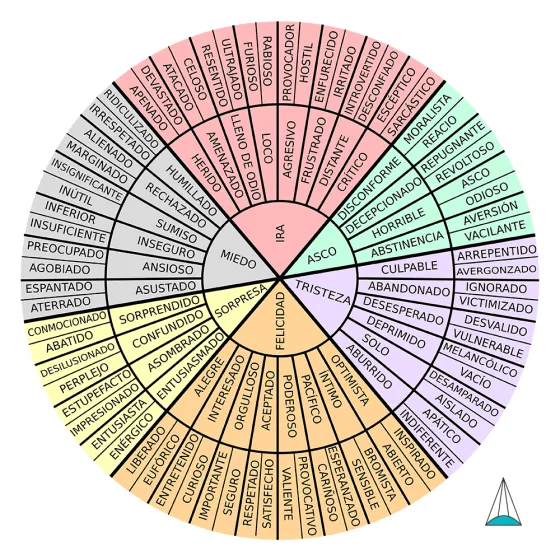Self -esteem is the concept we have of ourselves and the value we give to who we are.It is made up of beliefs, knowledge, thoughts, intuitions and doubts about oneself and how we interpret what happens to us and what we make to happen in our lives.Self -esteem reflects the feeling of satisfaction or dissatisfaction that derives from this valuation.
It is formed around three axes: the real self (how I see myself), the ideal self (how I would like to see me) and the social self (how I think other people see me).When these axes are equated there is good self -esteem.
When a person has a positive self -esteem, he feels satisfied with himself, he is able to face setbacks and difficulties, he maintains adequate social relationships and accepts criticism when they are constructive.
When a person has a negative self -esteem, he feels incapable, insecure, he does not accept himself, it is not spontaneous in social relations, he has an exaggerated fear of criticism and distrust of other people.
Self -esteem is created and transforming throughout our lives, having childhood a fundamental weight in the formation of it.The image that is returned from ourselves when we are little can mark, sometimes very negatively, self -concept.It is not uncommon to find that, from adults we drag labels that have been placed as little ones ("silly girl, patoso, shy boy ...") without any foundation.
There are experiences that negatively condition self -esteem:
-A inappropriate family education: father and/or mother excessive authoritarian, inflexible, intransigent;existence of dazzling brothers with whom they compare us;lack of family communication;Maltrate ...
-Traumas lived: serious accidents, attacks, violations, aggressions….
-Important charts: emotional ruptures that mark us, ruins, work losses ...
-S Social Taxes: Economic status, aesthetic patterns ... that we do not reach.How much more discrepancy there is between what a person proposes and what he achieves, more undervaluation.
The diagnosis of a chronic disease such as diabetes can alter our self -esteem.At the same time, the way of facing the disease will depend on the level of self -esteem we have.
Logically, it is not the same to face the diagnosis of adults, which we already have a concept of ourselves more or less stable, than as little ones, where our self -esteem is being built.
In younger children a feeling of guilt may appear when thinking that the disease (having to inject, not being able to eat sweets ...) is a punishment because they have behaved badly or in the older ones when believing that diabetes is negatively conditioningThe life of their fathers and mothers for concern, changes in habits ... guilt can have a negative impact on the construction of identity contributing to the creation of a devalued selfimaging.
As the child matures it is more aware of his real condition of "sick" that makes him different from other people around him and this idea can affect his self -esteem believing himself more vulnerable, less valid, more prevented thanThe rest.Here the role of the mother and father, as well as that of educators is essential having to emphasize emotional support and normalize their status as a person with diabetes resuming their daily activities, their relationships with the group of peers ... strengtheningThus his self -image.
In adolescents the impact that the diagnosis of diabetes has is more related to the loss, at first, its independence, the control of the situation, and sometimes on the part of the group of peers.This can cause a feeling of vulnerabilitythat will disrupt the concept that is being formed of itself and the search for its identity.
The adult who faces diabetes with good self -esteem can at the beginning that feeling of vulnerability and weakness but in the long run he will be able to take care of it, accepting and adapting to his new vital situation.
An adult with poor self -esteem will have more difficulty assuming diabetes in his life, because possibly he lives it as one more deficiency to add to his long list of weaknesses.His insecurity will cause the control of the disease to find it impossible, which in turn will cause the negative idea of himself to reinforce.
Gold rules in relation to self -esteem:
-Apping yourself.Recognize our qualities and resources and know the defects and limitations without falling in disqualifications and without letting our personality invade, trying to change what is improvable.
- Discover the thoughts we have about ourselves, as well as beliefs, values, principles ... that govern our life.We have to ask ourselves if they are valid and if we want to keep them.
- Contact with our needs and desires and decide whether or not we meet them, focusing that this decision is not mediated by fear, insecurity ...
–They only the soluctionable issues.Sometimes we are determined to solve issues or get things that are unattainable and this produces a great degree of frustration that we could have avoided.It is important to set realistic goals.
-Rechade the things we have achieved with our effort throughout our life helps us face the difficulties of the present with a more positive attitude.
-Fomient pleasant social relations and shy away from contact with people who are unpleasant and who treat us badly.
-Mimly and avoid living only depending on duties and obligations.Funning and enjoying leisure times helps increase self -esteem.
Author: Mª José deserved.
Source: Magazine among all No. 67





